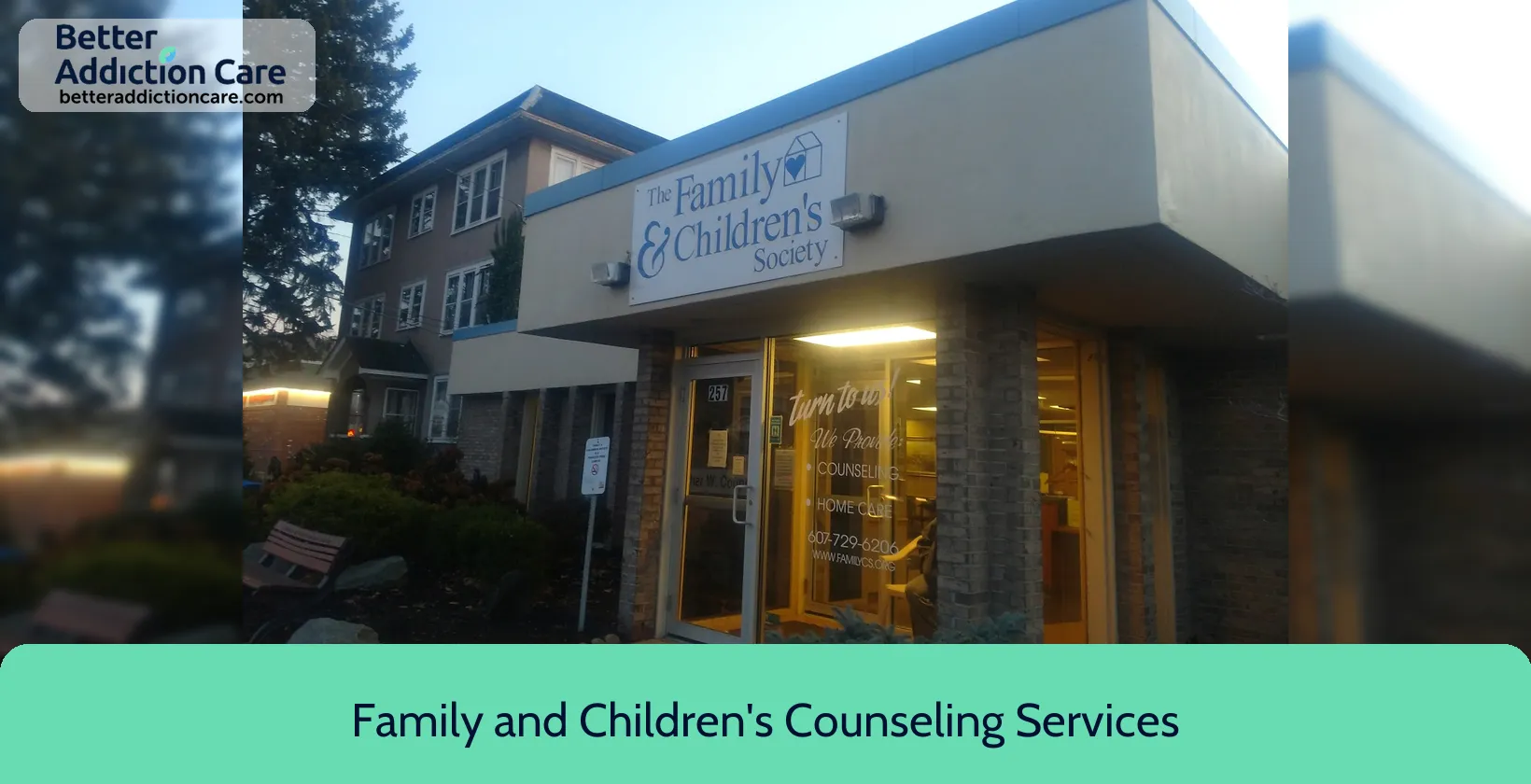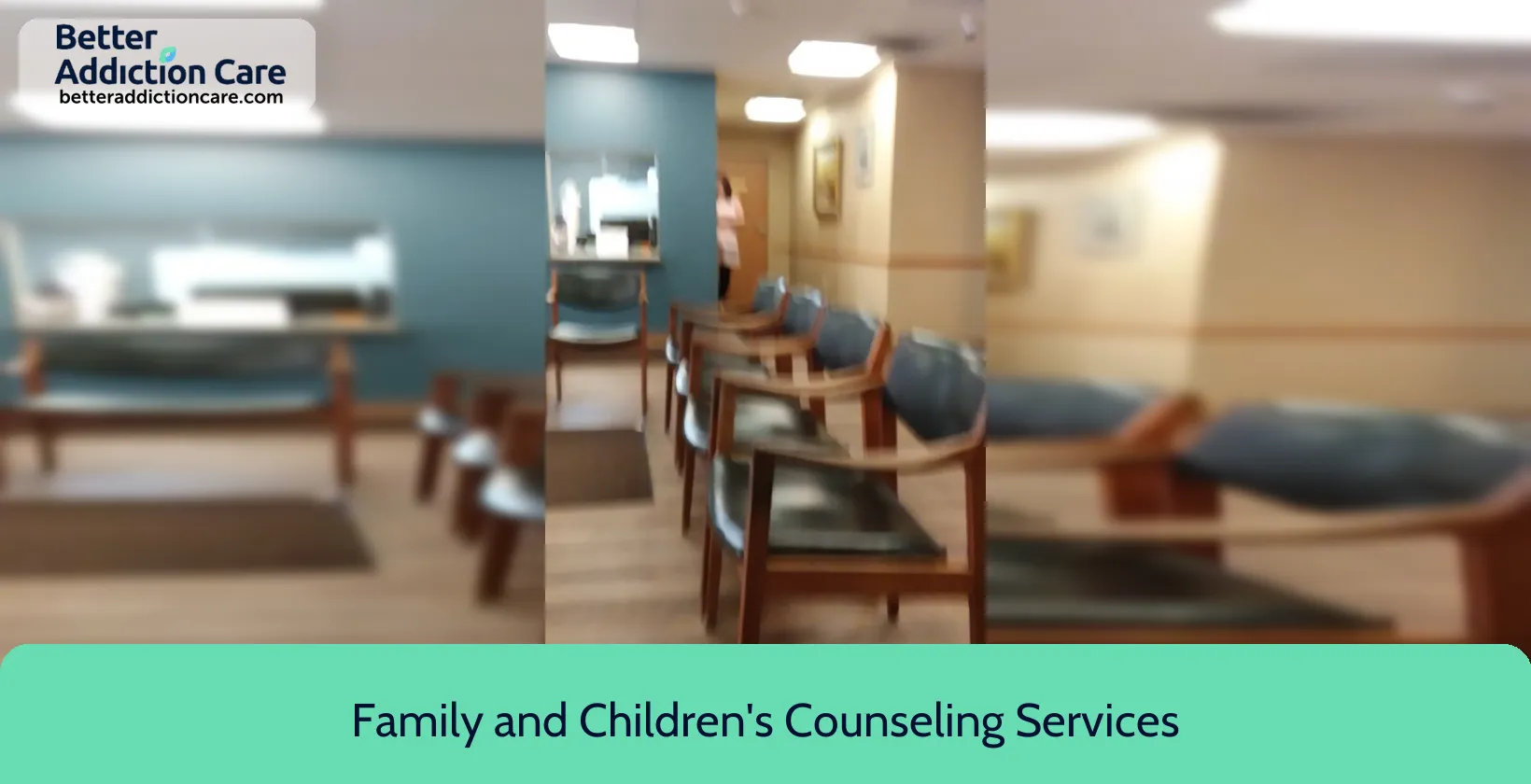Family and Children's Counseling Services - Family Mental Health Clinic
Overview
Family and Children's Counseling Services - Family Mental Health Clinic is a mental health treatment center for people seeking treatment near Broome County. As part of their treatment modalities for recovery, Family and Children's Counseling Services - Family Mental Health Clinic provides couples/family therapy, group counseling, and cognitive behavioral therapy during treatment. Family and Children's Counseling Services - Family Mental Health Clinic is located in Binghamton, New York, accepting cash or self-payment for treatment.
Family and Children's Counseling Services - Family Mental Health Clinic at a Glance
Payment Options
- Cash or self-payment
- Medicaid
- Medicare
- State-financed health insurance plan other than Medicaid
- Private health insurance
Assessments
- Screening for tobacco use
- Comprehensive mental health assessment
- Comprehensive substance use assessment
Age Groups
- Children/adolescents
- Young adults
- Adults
- Seniors
Ancillary Services
- Family psychoeducation
- Suicide prevention services
Highlights About Family and Children's Counseling Services - Family Mental Health Clinic
6.68/10
With an overall rating of 6.68/10, this facility has following balanced range of services. Alcohol Rehabilitation: 8.00/10, Drug Rehab and Detox: 6.00/10, Insurance and Payments: 6.00/10, Treatment Options: 6.73/10.-
Alcohol Rehabilitation 8.00
-
Treatment Options 6.73
-
Drug Rehab and Detox 6.00
-
Insurance and Payments 6.00
Treatment At Family and Children's Counseling Services - Family Mental Health Clinic
Treatment Conditions
- Alcoholism
- Mental health treatment
- Substance use treatment
- Co-occurring Disorders
Care Levels
- Outpatient
Treatment Modalities
- Couples/family therapy
- Group counseling
- Cognitive behavioral therapy
- Dialectical behavior therapy
- Integrated Mental and Substance Use Disorder treatment
Contact Information
Read our Most Recent Article About Drug Addiction
DISCLAIMER: The facility name, logo and brand are the property and registered trademarks of Family and Children's Counseling Services - Family Mental Health Clinic, and are being used for identification and informational purposes only. Use of these names, logos and brands shall not imply endorsement. BetterAddictionCare.com is not affiliated with or sponsored by Family and Children's Counseling Services - Family Mental Health Clinic.










